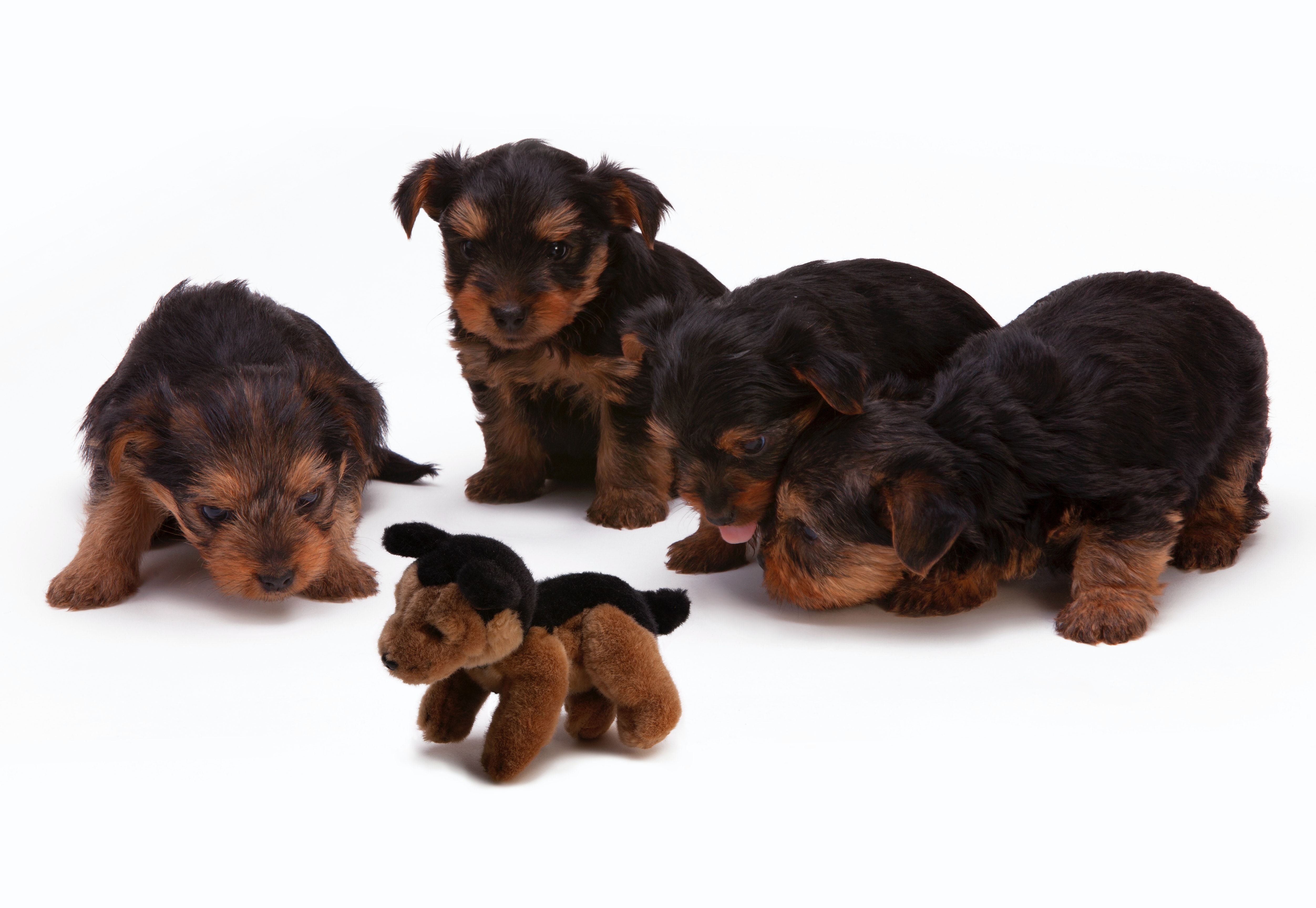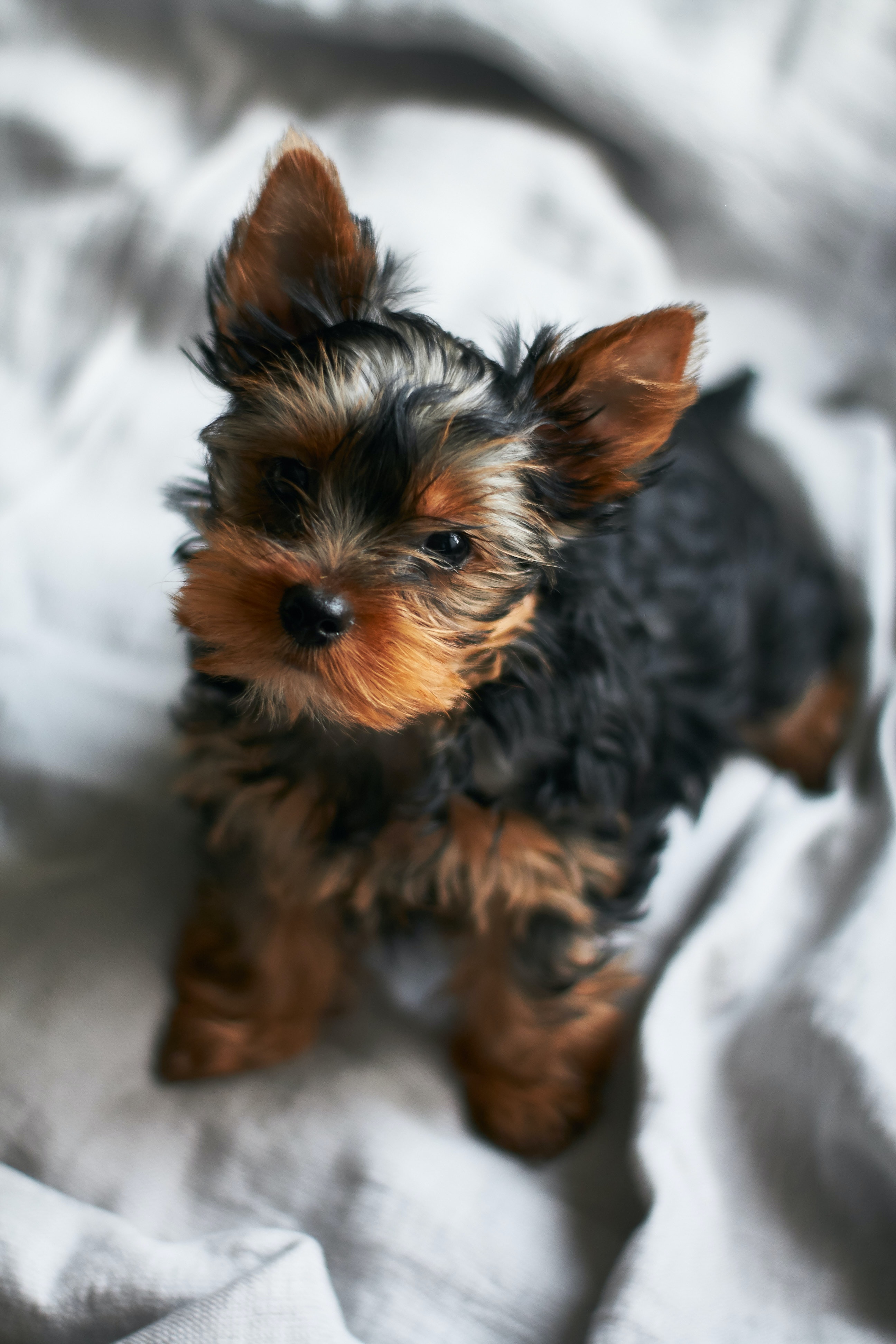
| Puppy Culture Rearing | | We
raise all of our litters with the Puppy Culture
socialization program. This is something you can continue far beyond
their first 8 weeks in our home. What
is Puppy Culture? Follow the link to learn about this incredible way to
raise puppies. We recommend purchasing a bundle to continue raising
your puppy to their fullest potential. Video on Puppy Culture Here |
What is Puppy
Culture all about?
Jane Killion, a
skilled dog trainer and breeder, founded Puppy Culture. It's a
well-organized, thorough regimen for breeders to follow throughout the
first few weeks of a puppy's existence. The first twelve weeks of
a puppy's life are crucial. This is an almost magical moment when a
breeder may influence a puppy's life result by what we choose to
educate him. We can give your puppy the greatest start possible by
doing the right things at the right time. |
Prenatal Period
Having superior genetic material for your youngster is simply the
beginning. The mother's physical and mental wellbeing has an impact on
the health of her puppies. We lavish attention and belly rubs on our
mothers because studies shows that pups born to mothers who undergo
prenatal massage are more docile and prefer being caressed. Even before
they are born, puppies are predisposed to create deep and profound
attachments. |
Neonatal Period (0-14 days)
ENS starts on day 3 and lasts until day 16. Moderate challenges and
anxieties, in small doses, are really beneficial to pups and will help
them develop into strong, healthy, well-adjusted adults, according to
research. Stress tolerance, illness resistance, a quicker adrenal
system, a faster heart rate, and a faster pulse are just a few of the
advantages. A breeder may only offer this gift to their offspring once,
between the ages of 3 and 16. |
Tranistional Period (14-21 days)
Because every puppy is different and these timeframes are just
recommendations, behavioral indicators are used to pinpoint the
beginning and conclusion of each maturation stage. The transitional
phase begins when the puppy's eyes open and ends when the puppy is
startled by sounds for the first time. |
Critical
Socialization (3-12 weeks)
Most people believe that socialization is exposing their pups to as
many new situations as possible while they are young. While this is an
important step, it is not sufficient. Our objective is to breed dogs
with the emotional intelligence needed to interact with people. One of
the purposes of the Puppy Culture Program is to train breeders how to
teach emotional intelligence to young puppies. There are seven crucial
factors that will help a puppy develop emotional intelligence.
1: Communication – giving a puppy his own voice
(Communication Trinity – (power up clicker, box game, manding),
attention/distraction protocols)
2: Emotional stability – the ability to
recover easily from fear as well as stress (startle recovery,
barrier challenges, Volhard Aptitude Test at day 49))
3: Habituation – familiarity with the
maximum number of things (Puppy Parties, sound protocols, habituation
soundtracks and noises, meeting different people, dogs, other animals)
4: Enrichment – the view that novelty
and challenges are opportunities for enrichment rather than things to
be feared or avoided (novelty items, Adventure Box, off premises
socialization)
5: Health – physical wellness and motor
skills that will allow the puppy to develop in a neurologically and
physically sound way (daily weight checks, grooming, vaccinations,
deworming, proper nutrition, vet health checks)
6: Skills – learned behaviors which
allow him to function in human society (recall, manding, simple
commands, litterbox training, crate training, leash walking, resource
guarding, bite inhibition)
7: Love – the desire to seek out the
company of both dogs and humans as emotionally positive experiences
(shaping emotional responses, Happy and Calm CER (Conditioned Emotional
Responses),daily cuddles with humans and mom). |
 Week 10-12 Week 10-12
Puppy Culture guidelines dictates that puppies
go home to their families. This enables puppies two weeks during that
crucial socializing phase to acclimatize to their new family's
lifestyle and meet new individuals.
This is an enormous amount of work, but it is 100
percent WORTH IT!!!!!! You will be as grateful for this program as we
are when you adopt your puppy! |
What does this mean for you, a seeker of a Puppy
Culture Puppy?
This means you'll be taking home a puppy who is
ready to take on the world. This implies starting training as soon as
you bring your puppy home since they're actively learning rather than
passively collecting information as less-enriched puppies do until they
learn how to learn.
From the moment they opened their eyes or before, these puppies were
taught how to learn and interact with their environment. I'll even go
so far as to argue that they've not only been taught how to, but
they've also been shown how the world works. They manage to make it
work. They are given the opportunity to make decisions and have a
voice. They are supposed to use their decisions to make the world
operate.

That's how you get the self-assured dog you
want: they learn that they have options, and their humans will respect
those decisions. Their initial months of existence laid the groundwork
for this. As the owner of one of these enriched pups, you now have the
task of maintaining their trust in their surroundings and in you.
Puppies who believe the world is theirs to take are not easily
controlled or scared, and may be a handful to people who are not
prepared to be an active part of their puppy's life. As previously
said, this entails beginning training the day you bring your puppy
home, continuing experiences, and continuing to support them throughout
their lives.
They should grow up to be bold, confident
puppies who are at ease in the human world to the utmost extent that
their genetic makeup permits.
Your obligations as an owner are similar to
those of the breeder in that they focus around time rather than
possessions. I'm not saying your dog will never leave your side, but I
am stating that without continual attention, effort, and enrichment
throughout puppyhood, adolescence, and maturity, your dog will not be
satisfied. Puppy Culture pups are looking for a purpose, clear,
positive reinforcement training for that goal, and continual confidence
in their humans in order to achieve their full potential. Even if the
goal is for them to be a well-behaved family pet, they will need to be
taught the skills required for the job, and they will be looking for
information to learn those skills from the minute you bring them home.
They're a lot of fun, extroverted, and sometimes
annoyingly courageous and imaginative puppies that require an owner
who's up to the task of assisting these great minds in reaching their
full potential. These puppies will plainly want to be a part of your
life and must be more than "simply a pet." So take charge and enjoy the
ride of your life!
Puppy Culture and Exercise
The Puppy Culture Exercise
Chart Found Here is a great guideline that both breeders and dog
owners can follow. It includes a variety of exercises that are
suitable for a puppy at each of theirpuppy growths stages, which are
split up into 8-12 weeks old, 12-16 weeks old, 4-6 months old, 6-12
months old, 12-18 months old and 18 months to 2 years old.
Click
here to learn more about Puppy Culture and to purchase for your new
puppy: |
|







